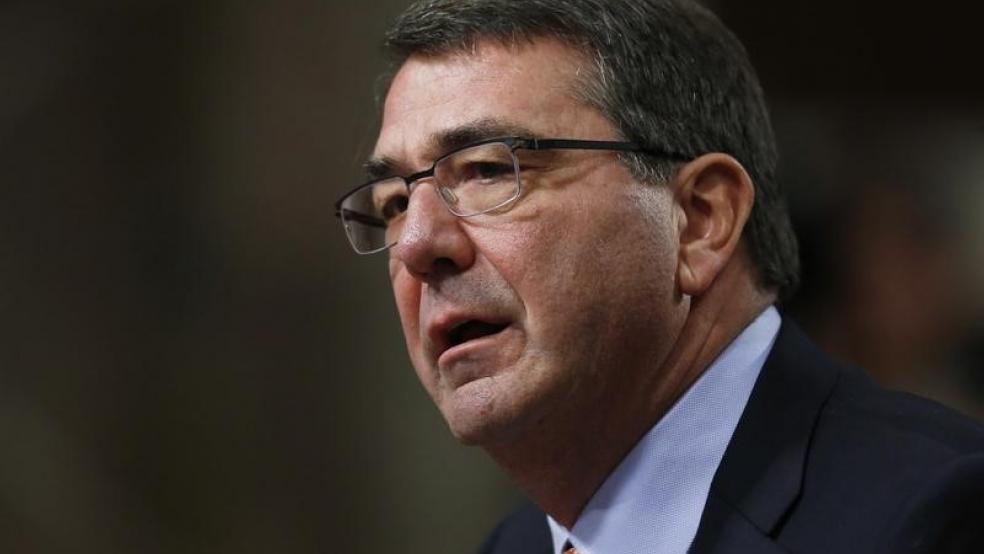Amid mounting criticism and public skepticism of President Obama’s strategy in the war against ISIS, Defense Secretary Ashton Carter on Sunday signaled that more U.S. troops could be sent to Syria -- provided they could work with local militias or rebels friendly to U.S. interests.
As conditions worsened in civil war torn Syria, the administration announced late last month it would deploy roughly 50 Special Operations to serve in an advisory capacity to groups battling ISIS as well as the Assad regime. The administration insisted that this move was not a harbinger of a major deployment of combat troops in Syria.
Related: Americans Agree on Little About ISIS – Except the U.S. Is Losing the War
However, during an appearance on ABC’s This Week, Carter said, “If we find additional groups that are willing to fight ISIL and are capable and motivated, we’ll do more.”
Carter was using another acronym for the murderous Islamic terrorist group that has captured wide swaths of Iraq and Syria, fomented conflict elsewhere in the Middle East and North Africa, and claimed responsibility for downing a Russian commercial jetliner over the Sinai Peninsula a week ago, killing all 224 passengers and crew aboard.
“The president has indicated a willingness to do more [against ISIS]; I certainly am prepared to recommend he do more, but you need to have capable local forces,” Carter said. “That’s the key to sustainable victory.”
Carter said that the special operations forces being deployed in Syria would provide intelligence and access to air power to help local forces, including Kurds and Syrian Arabs battling ISIS. “So this small, very elite group is intended to bring to bear all that the United States can bring to bear, in the way of intelligence, air power and so forth, to help these motivated, capable local forces.”
Related: Exclusive: Investigators '90 percent sure' bomb downed Russian plane
“And this is an instance of the whole strategy,” Carter said. “We have to beat ISIL. We will beat ISIL. ISIL’s heart is in Syria and Iraq.”
For the past year, the administration has pursued a dubious campaign against ISIS that combined thousands of air strikes against ISIS targets with a mostly failed effort to recruit and train rebel forces in Syria to wage war with ISIS forces. Many leading Republicans and some Democrats have complained that the administration’s strategy is woefully inadequate for the massive and growing challenge.
A majority of Americans would support sending in more ground troops to battle ISIS, according to a recent Quinnipiac University national poll, but 66 percent believe the U.S. is currently losing the war. Moreover, U.S. allies in the Middle East and Europe that initially took part in the air strikes against ISIS have been pulling back in recent months, leaving it to the U.S. to carry the burden of the air war, according to The New York Times. Saudi Arabia, the United Arab Emirates and Jordan, for example, have moved most of their aircraft to focus more on their fight against Iranian-backed Houthi rebels in Yemen.
Thus far, Arab and Western allies have conducted only about five percent of the 2,700 airstrikes in Syria, compared to 30 percent of the 5,100 air strikes in Iraq, according to The Times.
Related: $42 Million for 54 Recruits: U.S. Program to Train Syrian Rebels Is a Disaster
In the wake of the Russian airline disaster that many now suspect was caused by a bomb planted by an ISIS affiliate, Sen. Dianne Feinstein (D-CA), the ranking Democrat on the Senate Intelligence Committee, said the suspected bombing of the Russian airline should be a “wakeup call” to both the U.S. and Russia for the need to join forces.
“I have said before and I really believe it,” she said on Meet the Press yesterday. “We will fight them now or we will fight them later. It’s only a question of time.”





